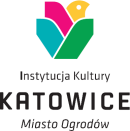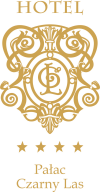| |
 |
"When media teach"
"Media in formal and informal education in the Visegrad Group Countries"
Monika Frania
University of Silesia in Katowice, Faculty of Pedagogy and Psychology,,
Institute of Pedagogy, Department of Early Education and Pedagogy Media,
ul. Grażyńskiego 53, 40-126 Katowice
e-mail: monika.frania@us.edu.pl<

Very informal education (Silesian fields, Poland 2014)
|

|
Description popularizing the research project
'Read something!'
'I'm reading!' the teenager grunts in irritation, with eyes on the screen scrolling lines of text. They do the same as their parents when the desks were not littered with computers, smartphones, MP players and tangled cables of chargers but with books, notebooks and dictionaries. So, on one hand, it is hard to be surprised by the teenager's irritation, but, on the other hand, the parent's concerns dictated by intuition also seem justified. Similar conclusions refer to the way young people listen to information. The activity and its effect is similar for both generations, yet the concerns are the same as for reading. Sources of audio information teachers and parents are familiar with and of which they approve have been replaced by sounds and words from TV and Internet. The problem is not how the information reaches young people's brains, as the means have been the same since the dawn of our species on Earth. The problem is the information itself, which to large extent is uncontrollable. Teenage brains are bombarded with unprecedented amount of data. The brains are expected to process the information immediately to be ready for the next portion of bits. Sometimes it is difficult to choose the most valuable knowledge while driving the contemporary 'information highway', especially when everybody can contribute to the ubiquitous media. It is not easy to be a teacher with outdated, from students' point of view, offer; as it is not easy to talk to a person speaking unknown language. Yet, it is possible to learn the new language and, through media which students follow, smuggle in a Trojan horse filled with valuable knowledge. It is already happening in some schools.
Works on extending the range of application of both the new and traditional media in education, just like teaching the youth and everyone how to look for opportunities and avoid dangers in contemporary means of communication are indispensible. What is more, international cooperation is necessary as unlimited access to information makes teenagers around the world get lost in the thicket of intertwined truths and lies as they try to learn the world on their own.
Abstract
Partners of the University of Silesia in the project are research teams from the following institutions: . Corvinus University of Budapest (Hungary) . Centre of Higher Education Studies in Praha (Czech Republic): . Constantine the Philosopher University in Nitra (Slovakia): The aim of the project is to conduct scientific research that will result in transferring good practice in using media tools in formal and informal education of children and youth from the V4 countries on the verge of development of the knowledge society. The activities are aimed at disseminating the results of the research, integrating around that idea and activating the communities of researchers, teachers, children and youth. As people live in the world of dynamically changing media, the use of the media in education is crucial from the pedagogical point of view. The project is important for both the V4 international community and local groups in each country. Diagnosis, comparison and then construction of a plan to implement effective solutions in other countries of the Visegrád Group is a specific added value of the project. The project started in February 2014 and is currently in progress. In the research centers in Poland, the Czech Republic, Slovakia and Hungary, the issue of importance of traditional media (e.g. newspapers, film) and so-called new media (e.g. the Internet) in formal and informal education and the need for media education is being diagnosed basing on the method of diagnostic survey, observation and document analyses. An additional element is the photo contest 'Media in my education', where young people can use the image to present their vision of the issue in question.
|
|
Komitet Organizacyjny


Sponsorzy




Patronat medialny





|
 2006
2006
 2008
2008
 2010
2010
 2012
2012
 2014
2014
















